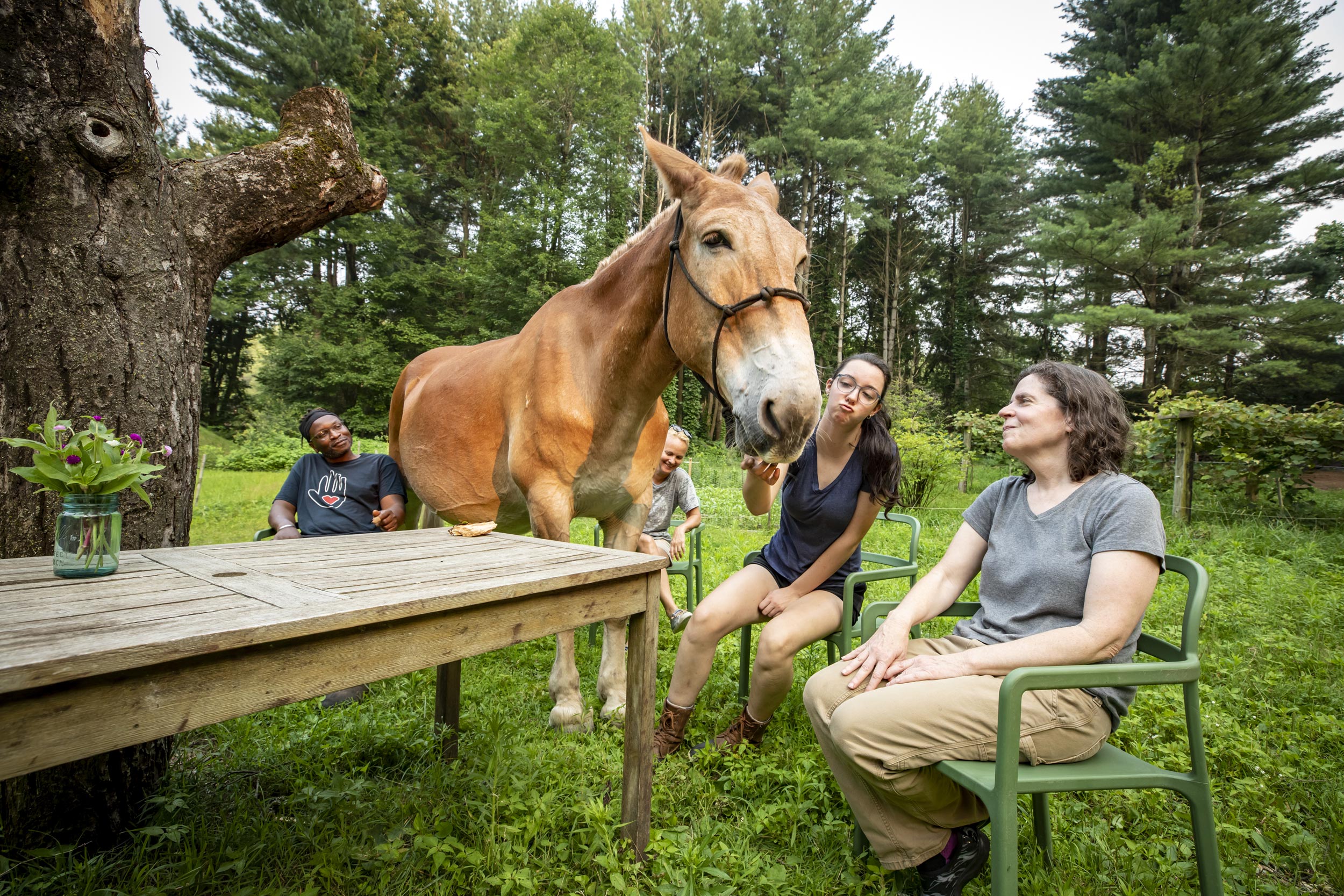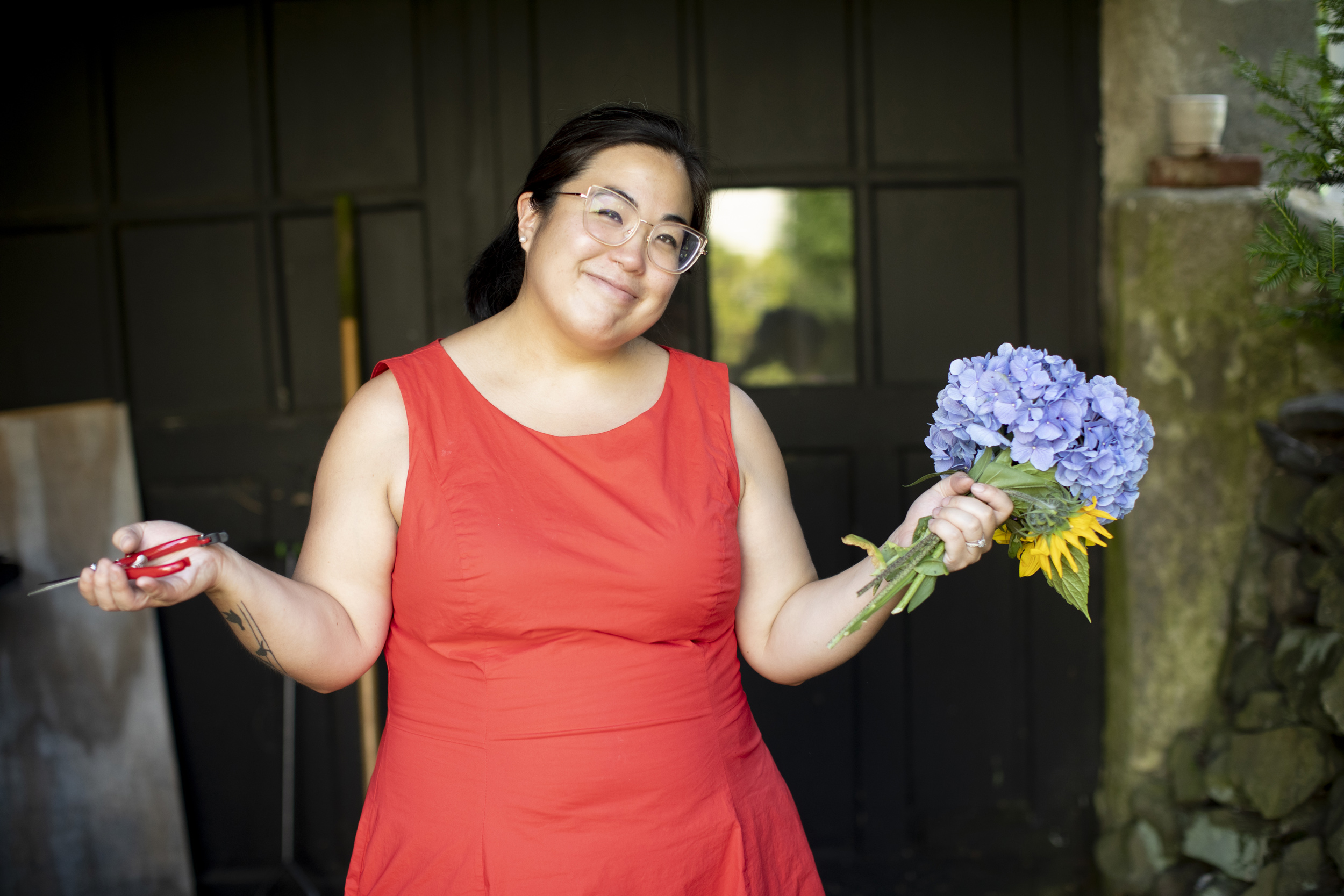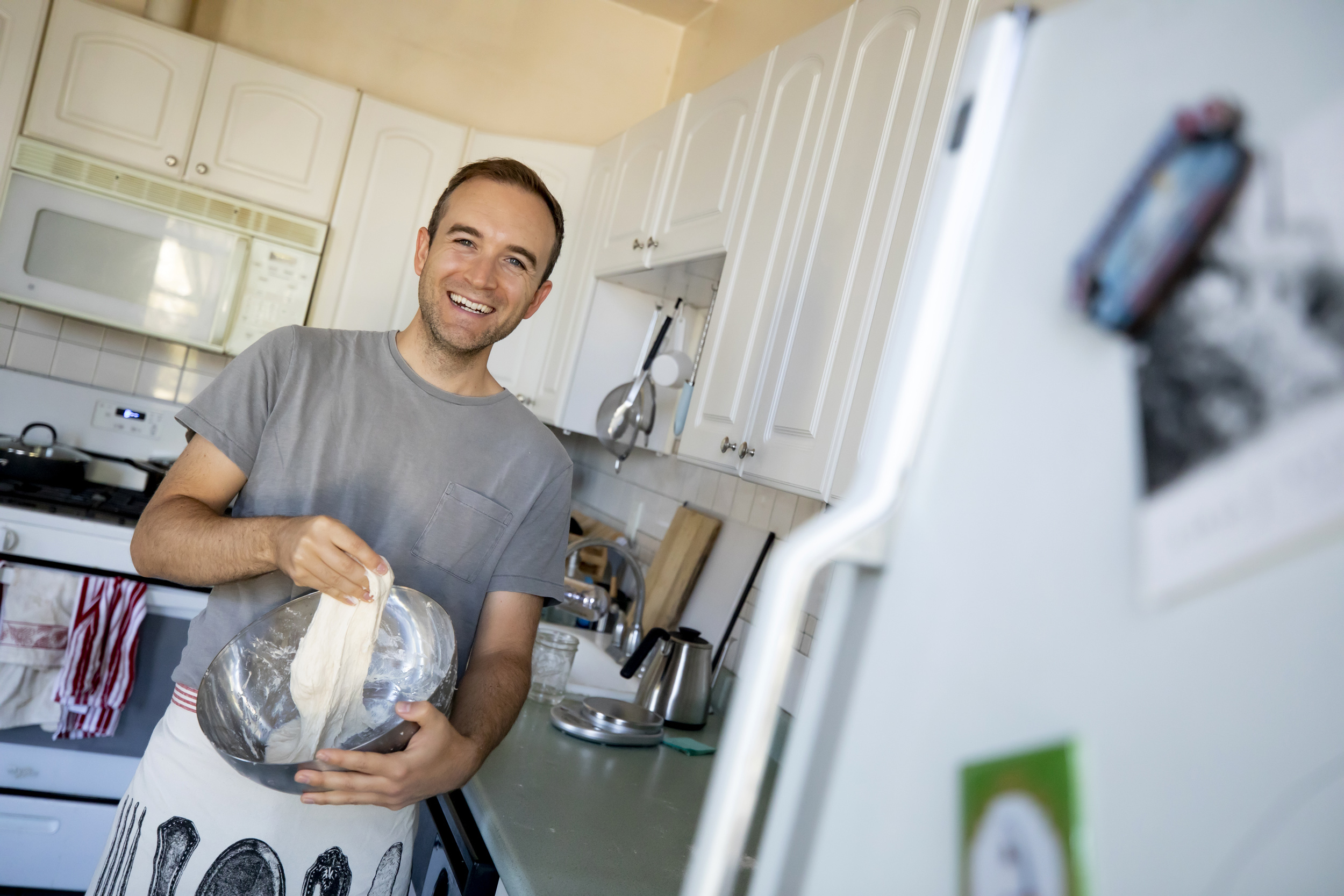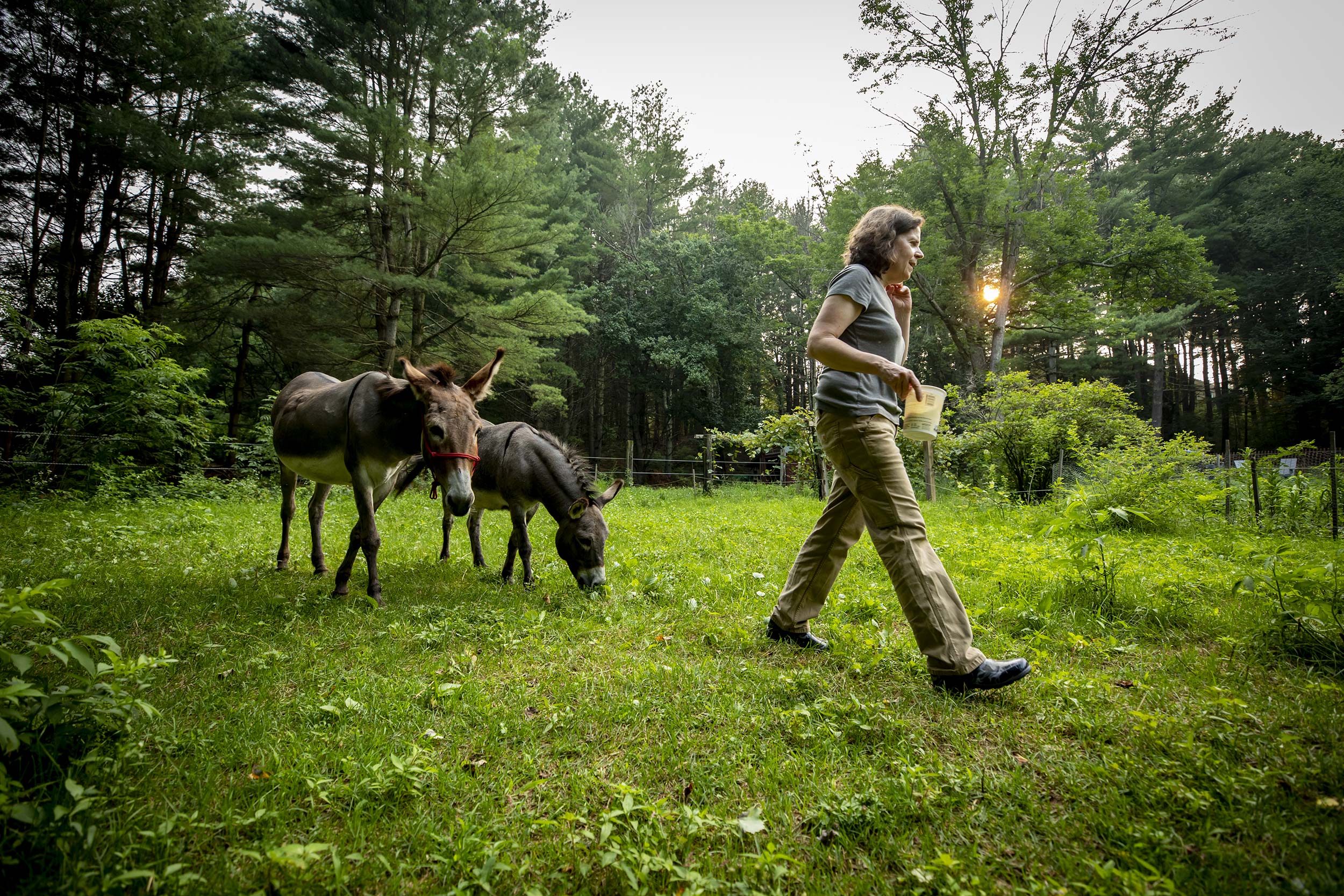
Harvard University Divinity School financial aid officer Julie Field (right) is pictured with Gulliver, her mule, and friends, Gee Kiwanuka (from left), Stephanie Tilton, and Eleanor Kuchar. All her Long Ears were rescues from Save Your Ass Long Ears Rescue in South Acworth, New Hampshire.
Photos by Rose Lincoln/Harvard Staff Photographer
A year of revelations
Taking up baking, gardening, and other activities during pandemic gave 4 Harvard staffers a new perspective
Many of us are returning to campus this fall transformed. Some of us carry loss, others a newfound sense of peace or the realization of the importance of family and friends. We asked four Harvard staffers what they did to get through the past year and a half and how it changed them. Here are their stories.

Nourishing the soil and the soul
Margaret Okada-Scheck
Associate Director of Admissions, Harvard Divinity School

Margaret Okada-Scheck moved into a new house in Waltham with her husband and toddler son just as COVID hit. Nobody she knew while growing up in Queens had gardened, but the city transplant soon discovered a knack for it in her new yard. Inspired by ecologist Doug Tallamy, who calls for restoring biodiversity one person at a time, she was hooked.
“It was really nourishing to do something physical amid all-remote work. And healing to be able to nurture plants, to be able to grow during a time of such grief.”
On a walk around her yard, Okada-Scheck points out her recent plantings: a hydrangea, an Eastern redbud. She talks about her plans to plant pathways with native flowers and joked about the not-so-timid local rabbits and all they have eaten. She says the “mature plantings” advertised in the broker’s listing for her house really meant that nothing was ever trimmed. There is an enormous lilac in the backyard to tackle, along with a pair of trees blocking all light into the kitchen. One of them has a nest in its branches. As Okada-Scheck plants new roots for her family, she’s not willing to uproot this family of birds in the process. The tree will stay put for now.

Lessons in loaves
Lucas Harty
Assistant Director of Admissions, Harvard Law School

“I wasn’t the only one to find their way to bread-baking over quarantine,” says Lucas Harty about the pandemic trend. After a friend made him a loaf, soon he was making his own batches of sourdough in the spacious and sunny second-floor kitchen in Central Square that doubled as his office throughout the pandemic.
“During a year when so much felt outside of one’s control, baking sourdough helped to give a sense of structure and certainty to each day,” Harty says. “More than anything, it’s been an important reminder to slow down a bit, appreciate the process or journey, be more present in the moment, and accept that there’s plenty in life we just can’t control.
“You can’t rush bread-baking. It takes time and care.”

Pastoral social circle
Julie Field
Financial Aid Officer, Harvard Divinity School

Julie Field spent a lot of time during the pandemic chasing her two donkeys, Rosie and Peanut, and a mule named Gully around a neighbor’s pasture in Concord. Along with the animals, she hiked the property with a self-described “motley crew” of good friends: Stephanie Tilton, Eleanor Kuchar, Jane Huber, Jane’s husband, Gee Kiwanuka, and their son, Ezekiel.
“I always knew it was beautiful out here, but I saw more. For instance, Stephanie showed me the difference between a hawk’s wings and a turkey buzzard’s wings.” And Eleanor, studying to be a veterinarian, showed them an acorn filled with an ant colony.
On Saturday mornings, the group would meet for coffee with other friends. In the early days of the pandemic, their chairs were 6 feet apart. The tradition continues, but the chairs are closer.
“Life slowed down,” Field said. “It would be easy to get sped up again, especially in New England. I don’t want that to happen. I want to keep appreciating these people around me.”
A great-great coincidence
Jessica Pesce
Associate Dean for Faculty Affairs, Graduate School of Education

It seems like everyone left something on their desk when Harvard closed due to COVID in March 2020. For Jessica Pesce, who was six months pregnant at the time, it was baby gifts she had received from her Ed School colleagues. She jokes that she and her husband, Dan Ullucci, have been in double survival mode adjusting to both parenthood and the pandemic.
“He’s happy and healthy,” Pesce says of baby Antonio. “While working, I get to run downstairs and see him at lunch. Yet his first year sometimes seems like a blur.”
The pandemic has delayed Antonio’s introduction to all the relatives at the big Thanksgiving meal Pesce’s parents have hosted for 40 years, or at the Feast of the Seven Fishes she hosts herself on Christmas Eve. But in the meantime, she and two other relatives started to dig into their family’s genealogy and found an interesting connection.
Turns out that baby Antonio’s great-great-grandfather on the Pesce side and his great-great-grandfather on the Ullucci side had traveled to Boston on the same ship from Naples in June 1910, but no one knows if these two men met aboard the Romanic. In 1918, Boston was ravaged by the Spanish Flu. These men survived, and now their great-great-grandson Antonio will have his own pandemic story to tell.




